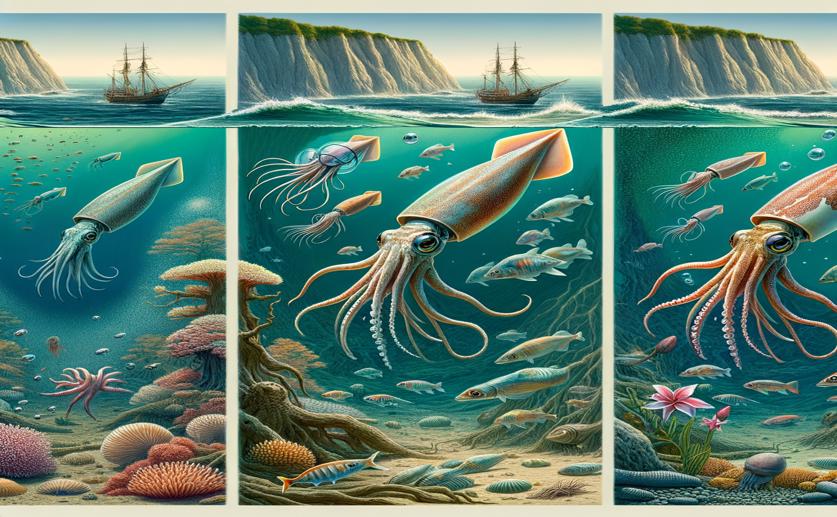
Understanding Ecosystem Changes Over Time Using Historical Squid Beaks
Greg Howard
4th July, 2024

Image Source: Natural Science News, 2024
Key Findings
- The study analyzed stable isotope signatures in two squid species from the Arctic and North Atlantic, collected between 1844 and 2023
- Climate-driven shifts in marine ecosystems are reflected in the ecology of short-living mesopredators like squids
- The isotopic data indicated changes in the squids' diet and habitat use, suggesting adaptation to changing environmental conditions in the Arctic
EcologyMarine BiologyEvolution
References
Main Study
1) Insights on long-term ecosystem changes from stable isotopes in historical squid beaks
Published 3rd July, 2024
https://doi.org/10.1186/s12862-024-02274-7
Related Studies
2) Climate-driven changes in functional biogeography of Arctic marine fish communities.
3) Arctic marine mammal population status, sea ice habitat loss, and conservation recommendations for the 21st century.
4) A temporal shift in trophic diversity among a predator assemblage in a warming Arctic.
5) Contrasting changes in space use induced by climate change in two Arctic marine mammal species.



 25th March, 2024 | Jim Crocker
25th March, 2024 | Jim Crocker